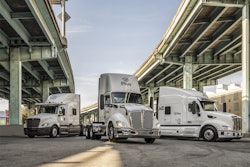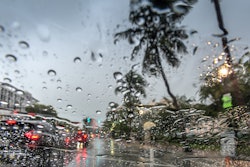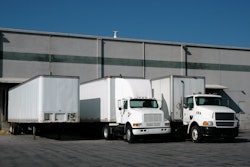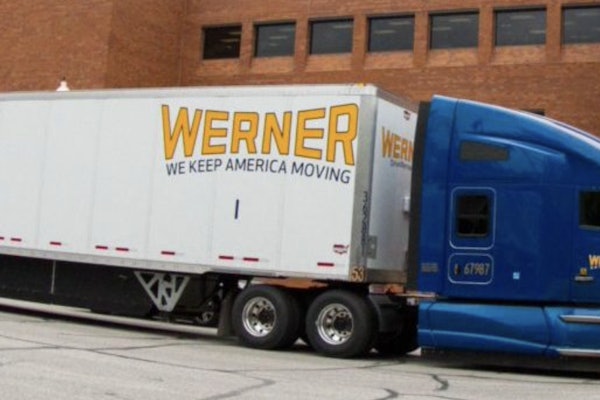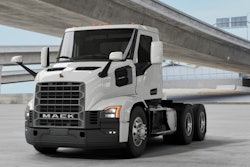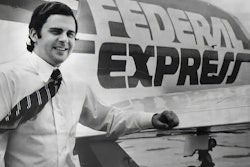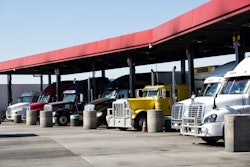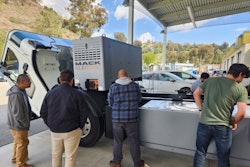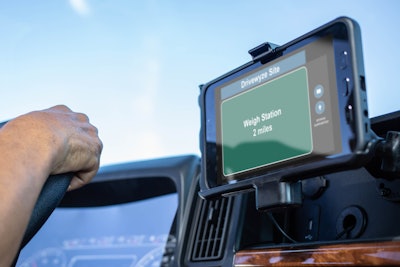
Whenever enforcement officers conduct Level 3 inspections at weigh stations, drivers and officers have to complete some manual steps to transfer data between the electronic logging device (ELDs) in the truck and the computers at inspection sites.
The transfer process takes time and is prone to data input errors. If manual steps cause disruptions in the transfer of hours-of-service (HOS) data, ultimately drivers could receive violations.
Drivewyze, which provides a weigh station bypass program known as PreClear, has been working with ELD providers and state agencies on an automated e-Inspection service to eliminate the manual input.
The company developed a new service through established relationships with ELD providers, government and law enforcement agencies and opened enrollment June 30 in the new program to fleets who pass through weigh stations in Maryland, Maine and Virginia.
Drivewyze has been working with the states to automate the transfer of HOS data to improve speed, efficiency and inspection accuracy. Other states are expected to join the list once their agencies have completed software updates.
The new e-Inspection service is free for fleets that use Drivewyze PreClear for weigh station bypass and have ELDs from Drivewyze integration partners. The first to participate in the new program are Platform Science and Geotab.
Western Express (CCJ Top 250, No. 48) participated in the e-Inspection trials. The Nashville, Tennessee-based carrier has more than 3,000 trucks and 7,500 dry van and flatbed trailers. The company is in the process of deploying an ELD and fleet telematics system from Platform Science.
“I think in those [three] states it will help us make things more efficient and save time,” said Daniel Patterson, director of safety.
Whenever the company has Level 3 inspections its driver violation rates are much better than the national average, he noted. Participating in the e-Inspection program may result in the fleet getting more Level 3 inspections, but that “is always going to help us,” he said, because Western Express will get credit for more “clean” inspections, which will improve the company’s Compliance, Safety, Accountability (CSA) scores.
E-Inspections will also help with driver satisfaction, especially since the company hires a lot of drivers new to the trucking industry from CDL schools. New drivers tend to “get a little nervous when doing inspections,” Patterson said. “This is making things easier.”
For Western Express the e-Inspection process is reducing the time for drivers to go through a Level 3 by half, he estimates. “It saves a lot of time. Drivers love it.”
Brian Heath, chief executive of Drivewyze, said that “clean” Level 3 inspections are completed within in a few minutes using the new service, which otherwise takes about 30 minutes to complete manually.
The time savings “allows the driver and fleet to improve or maintain their safety score while logging more miles,” Heath said. “It also frees the inspection officer from time-consuming manual data entry so they can concentrate efforts on trucks that truly do need inspecting.”
Heath stated that e-Inspections will help address longstanding CSA data sufficiency problems. Inspectors will have more time to stop trucks and keep the safety scores of fleets up to date. This would help fleets raise their CSA scores to qualify for weigh station bypass services as well as create more load opportunities with freight brokers and shippers, he noted.
The e-Inspection process works by having the ELD automatically send driver logs to the roadside inspection site when an officer starts an inspection. The officer conducting an inspection has information at the vehicle, carrier and driver level pre-filled in an electronic inspection report form.
The inspector then evaluates the information on the form to decide if any further validation or investigation is required. If the officer is satisfied, the inspection can be completed at the touch of a button.
“As law enforcement and industry partner in the goal toward improved safety, tools like Drivewyze e-Inspection increase efficiency for both stakeholders,” said Captain Josh Barnes, Maryland State Police, Commercial Vehicle Enforcement Division.





